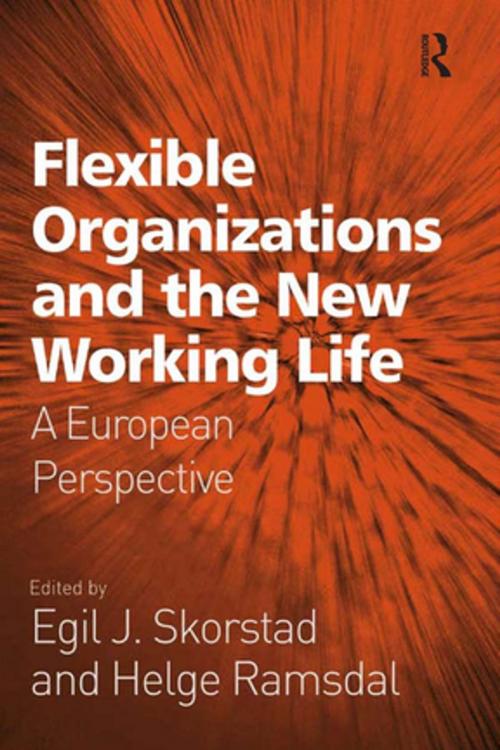Flexible Organizations and the New Working Life
A European Perspective
Nonfiction, Social & Cultural Studies, Social Science, Anthropology| Author: | Helge Ramsdal | ISBN: | 9781317134794 |
| Publisher: | Taylor and Francis | Publication: | April 15, 2016 |
| Imprint: | Routledge | Language: | English |
| Author: | Helge Ramsdal |
| ISBN: | 9781317134794 |
| Publisher: | Taylor and Francis |
| Publication: | April 15, 2016 |
| Imprint: | Routledge |
| Language: | English |
What are we actually talking about when we talk of flexibility in organizational settings? Do flexible forms of organization lead to varied, challenging and autonomous work or do they have a negative impact on working conditions? These questions are confronted by a group of specialist authors including Stephen Ackroyd, Harriet Bradley, Jan Ch. Karlsson, Philippe Mossé and Michael Rose, who discuss the concept of flexibility in relation to employment practices, organizational structure, cultural peculiarities and network arrangements in France, Italy, Norway, Sweden and the UK. While the question of workplace flexibility has been much debated in recent years, the main issues discussed have been the practice of non-standard forms of employment such as part-time work. This book is distinctive in dealing with flexibility related to organizational arrangements, organizational culture and network arrangements, and in assessing the combined effects of different arrangements in terms of manpower, structure, culture and networks on flexibility.
What are we actually talking about when we talk of flexibility in organizational settings? Do flexible forms of organization lead to varied, challenging and autonomous work or do they have a negative impact on working conditions? These questions are confronted by a group of specialist authors including Stephen Ackroyd, Harriet Bradley, Jan Ch. Karlsson, Philippe Mossé and Michael Rose, who discuss the concept of flexibility in relation to employment practices, organizational structure, cultural peculiarities and network arrangements in France, Italy, Norway, Sweden and the UK. While the question of workplace flexibility has been much debated in recent years, the main issues discussed have been the practice of non-standard forms of employment such as part-time work. This book is distinctive in dealing with flexibility related to organizational arrangements, organizational culture and network arrangements, and in assessing the combined effects of different arrangements in terms of manpower, structure, culture and networks on flexibility.















